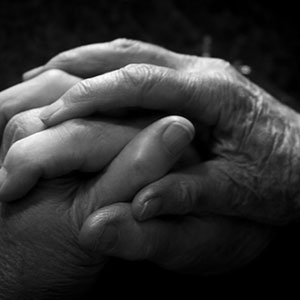Coping with Arthritis as You Age

One side effect of aging is that many people deal with is arthritis. This swelling of the joints can leave you feeling stiff and sore. It may become more difficult to get your fingers to do the intricate tasks you once did, or maybe you feel it in your hips or ankles when you try to transition from sitting to standing. But arthritis doesn’t have to keep you down. There are many ways of coping with this condition:
Remain as Active as Possible
Keep up with your normal routine when you can. Engaging in gentle stretches each day that work all of your joints can enhance your flexibility and reduce stiffness and pain. Continue to do activities that you enjoy because moving your joints helps loosen them up and maintain your range of motion.
Adjust your exercise routine to avoid high-impact activities that put pressure on your joints such as running, jump roping, or playing tennis. Focus on low-impact options such as biking, swimming, yoga, and walking. Regular exercise can also help you maintain a healthy weight which can be better for your joints.
Know When to Take a Break
Learn to listen to your body. While staying active can be good, you should also rest when you are feeling especially sore or tired. Give your joints a break so you don’t overdo it and cause yourself more pain in the long run. It’s all about finding balance and knowing when to push yourself and when to take it easy.
Pay Attention to Your Mental Health
Arthritis does not just affect you physically; it can also take a toll on your mental health. It can be frustrating trying to do different activities and not having your joints cooperate, or dealing with chronic pain. Some people experience depression or loneliness. Connect with friends and family who make you laugh and feel good. Continue doing things you enjoy as you are able, even if that means make some modifications. Explore new hobbies that aren’t affected by your arthritis.
Your attitude can play a role in how you feel, so try not to dwell on the negatives. Meditation and deep breathing can be beneficial in calming your mind and reducing stress. It can also help to join a support group and talk to others who are going through similar experiences. You can share your stories and what coping strategies you have found effective.
Try Different Treatments
No two people experience arthritis exactly the same way. Find what works for you and don’t be afraid to try new things. Sometimes an over-the-counter anti-inflammatory may be enough to manage any discomfort, and other times you may need a prescription medication. That’s okay. There are also topical creams that can help ease pain and stiffness in your joints.
After you’ve been active, take a break and enjoy the warmth of a bath or shower. Or, you may find that ice packs are more effective at providing relief. It could vary depending on what you have been doing or how your muscles feel. Some people also find that acupuncture is useful.
Managing Changes in Abilities
Living with arthritis, some days you may be more active and others not so much. Partnering with an in-home caregiver can enable you to get the level of support you need when you need it. A caregiver can assist with tasks that your arthritis makes difficult while allowing you to remain as safe and independent as possible. Contact Always Best Care today at 403-812-0778 to schedule a free consultation and learn more about how in-home care can benefit seniors.





